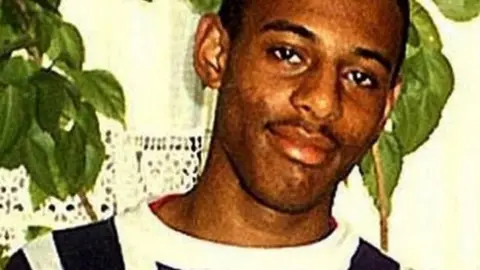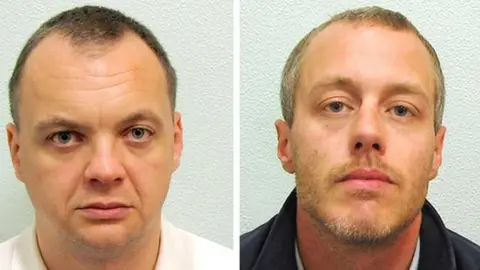Stephen Lawrence family criticises undercover police inquiry
 AFP
AFPThe parents of murdered teenager Stephen Lawrence are losing confidence in the public inquiry into undercover policing, their lawyers have said.
In an opening statement for Baroness Doreen Lawrence, Imran Khan QC said the campaigner had doubts the inquiry would reveal why her family were spied on.
Counsel for Stephen's father Dr Neville Lawrence echoed her concerns.
The Lawrences also raised questions about the number of police officers granted anonymity during the inquiry.
It emerged that undercover officers had spied on the family's campaign for justice, with whistleblower Peter Francis claiming he had been tasked with finding "dirt" on the Lawrences and their supporters.
Currently, the cover names of 51 officers must remain secret, along with 119 of the real names of officers and staff.
So far, one has been published - David Hagan - but there are four others who remain anonymous that Dr Lawrence would like identified.
Heather Williams QC, representing Stephen's father, said if the family were at least given the cover names, they would be able to give evidence about what the police spies did.
 PA
PAStephen was murdered by a gang in 1993 and incompetence and racism within the Met Police marred the original investigation.
Two of his killers, Gary Dobson and David Norris, were jailed nearly 20 years later but the remaining three suspects never faced justice.
Baroness Lawrence believes it was only the public nature of the Macpherson Inquiry into her son's death that meant racism in the force was exposed.
The Lawrences have called on inquiry chairman Sir John Mitting to appoint panel members to help him focus on issues including racism, as the previous inquiry did.
Mr Khan said: "The fact that the Metropolitan Police and the individual officers have made applications for anonymity and, more importantly, that they have been granted, is a travesty and goes against everything that a public inquiry stands for and what Baroness Lawrence expected.
"It appears to her that this inquiry is more interested in protecting the alleged perpetrators than the victims."
